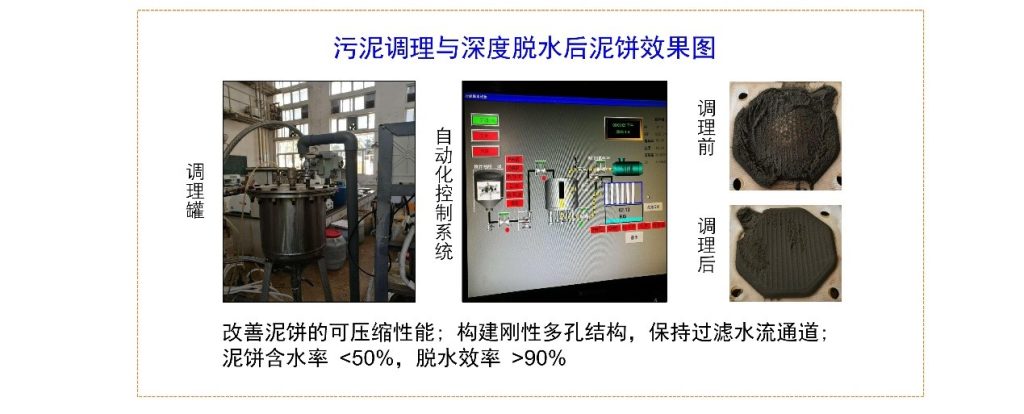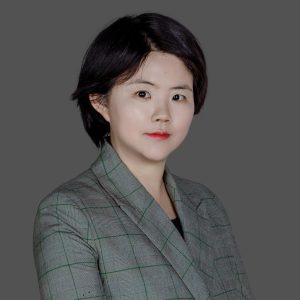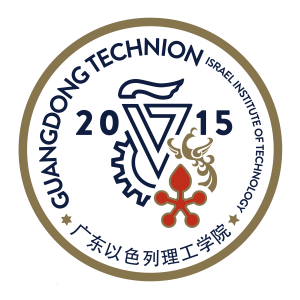Sewage Sludge Treatment and High Value Technology
Department:
Department of Environmental Science and Engineering, GTIIT
Field of Technology:
(1) Two-stage anaerobic digestion of sludge
(2) Deep dehydration of sludge
(3) Treatment of chemical wastewater
(4) Removal of suspended particles in sewage
(5) Enrichment of humic acid substances in sludge
Technical keywords:
(1) Sludge pre-treatment
(2) Bound water removal
(3) Electrochemical reactor
(4) Microplastic separator
Introduction & Feature of Technology:
Sludge treatment and disposal is a global problem. By analyzing the characteristics of dissolved organic matter in sludge, a two-stage sludge anaerobic digestion technology with heat-alkali combined pre-treatment as the core was developed. This technology successfully increased the removal rate of volatile solids from 30% to 70%, shortened the hydraulic retention time from 20-30 days to 9-12 days, greatly reduced the volume and floor space of the anaerobic reactor, and saved the cost of sludge treatment. In addition, a variety of new dehydration methods to promote the dissociation of bound water and hydrophilic organic matter in sludge were established, and a series of sludge dehydration agents were developed to improve the compressibility of the mud cake, build a rigid porous structure, maintain the filtration water flow channel, and the mud cake moisture content <50%, and the dehydration efficiency >90%. Patent transfer in Singapore, Germany and China has huge market potential.

Figure 1. Two-stage sludge anaerobic digestion technology

Figure 2. Sludge deep dewatering technology

Figure 3. Treatment of chemical wastewater
Field of Application:
Sludge anaerobic digestion, sludge deep dehydration, chemical wastewater treatment
Market Prospect:
The developed two-stage sludge anaerobic digestion technology was cooperated with a local listed company in Singapore, and is still used for anaerobic digestion and disposal of sludge in local sewage treatment plants in Singapore; the developed sludge deep dehydration technology removes a large amount of water from the sludge, saving subsequent incineration costs, increasing the calorific value of the sludge, and helping companies save on chemicals, transportation and incineration costs; the developed chemical wastewater treatment technology helps companies solve the treatment and disposal of wastewater with high chemical oxygen demand and high ammonia nitrogen. The treated water can be reused, helping companies solve the problem of difficult treatment of chemical wastewater.
With patent or not:
More than 10 patents have been authorized, including a Singapore patent (first inventor)
With Paper or not:
In the field of sewage sludge treatment and disposal, more than 120 SCI papers have been published in journals such as Environmental Science & Technology, Water Research, Chemical Engineering Journal, Environment International, ACS ES&T Engineering and ACS ES&T Water, with an H-index of 40 and 4,724 citations (as of February 2024), of which five papers were selected as highly cited papers.
Technology Maturity Level:
The technology focuses on practical problems in industrial applications and strives to solve practical problems encountered in the treatment and disposal of sewage sludge in sewage treatment plants and enterprises. We have established cooperative relationships with different sewage treatment plants and enterprises in different countries around the world. The two-stage anaerobic digestion technology of sludge has been applied in engineering in local sewage treatment plants in Singapore; the deep dehydration technology of sludge has been cooperated with sewage treatment plants in Wuhan, Shenzhen and Germany; and the chemical wastewater treatment has been cooperated with enterprises in Shantou, Guangdong. The enrichment of humic acid substances in sludge has been reported by German media; the technology for removing suspended substances in sewage has been cooperated with German enterprises.
Expert Introduction:
Dr. Keke Xiao is an Alexander von Humboldt Scholar and an Associate Professor, independent PI in the Environmental Science and Engineering Program, Guangdong Technion-Israel Institute of Technology. Dr. Xiao completed PhD in 2016 at Nanyang Technological University, Singapore. She then carried out research across multiple countries and institutions including Karlsruhe Institute of Technology (Germany), Tsinghua University (China) and Huazhong University of Science and Technology (China). She joined GTIIT in June 2023. Her research interests include wastewater and sludge treatment and disposal.
In the field of wastewater and sludge treatment, Dr. Keke Xiao has published > 110 peer-reviewed scientific papers in flagship journals like Environmental Science & Technology, Water Research, Chemical Engineering Journal, Environment International, ACS ES&T Engineering and ACS ES&T Water in the last five years, with an h index of 34 and citation times of 3741 (as of Jun 2023). Five of the journal publications are highly cited in Water Research and Science of the Total Environment. She holds several Singapore and China patents. She was selected as World’s Top 2% Scientists 2022, by Mendeley Data. She is a member of IHSS, IWA and ACS, and reviewer of several journals. She serves as Editorial Board of Water and guest editor for several journals and was the outstanding peer reviewer for several journals.


